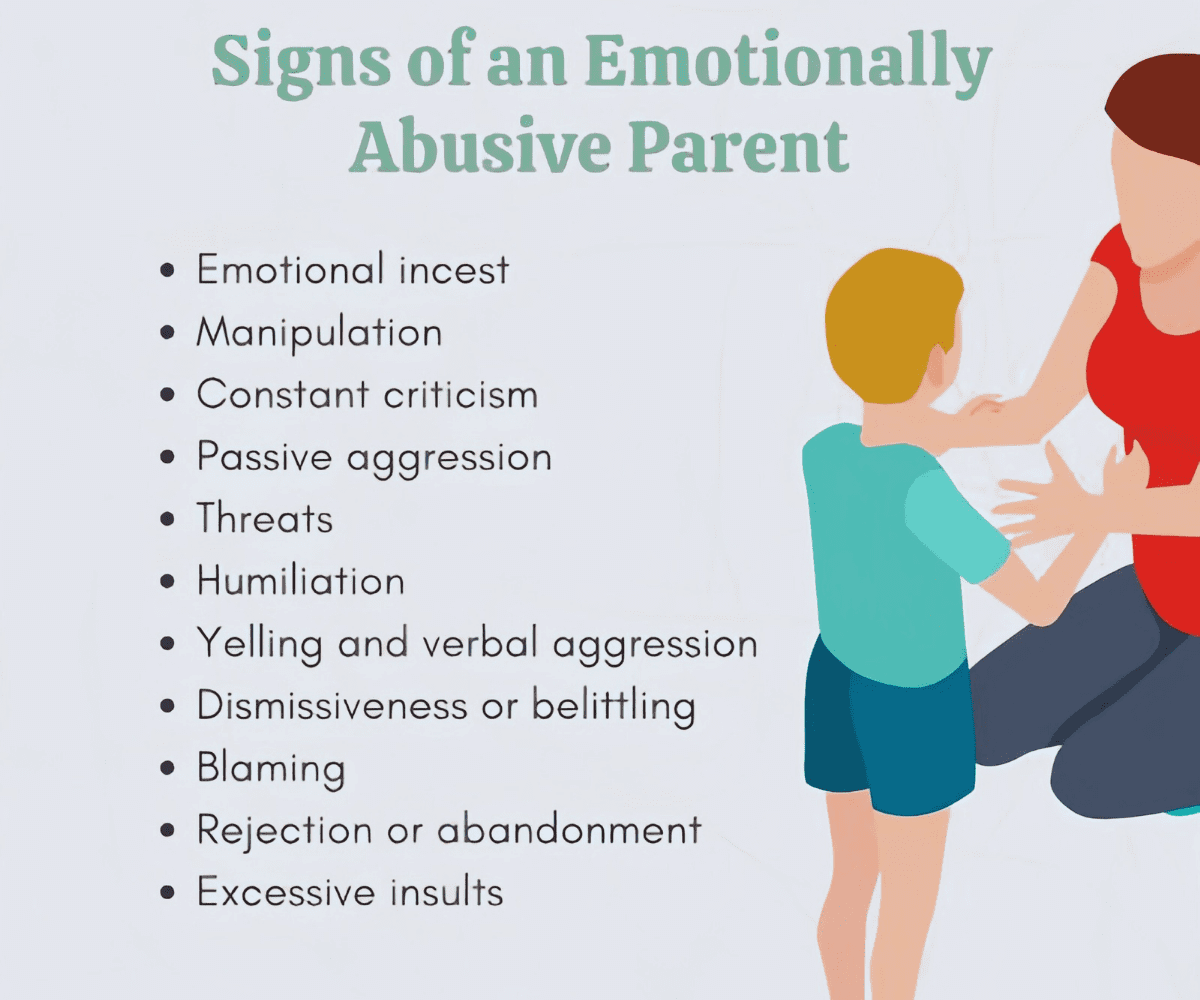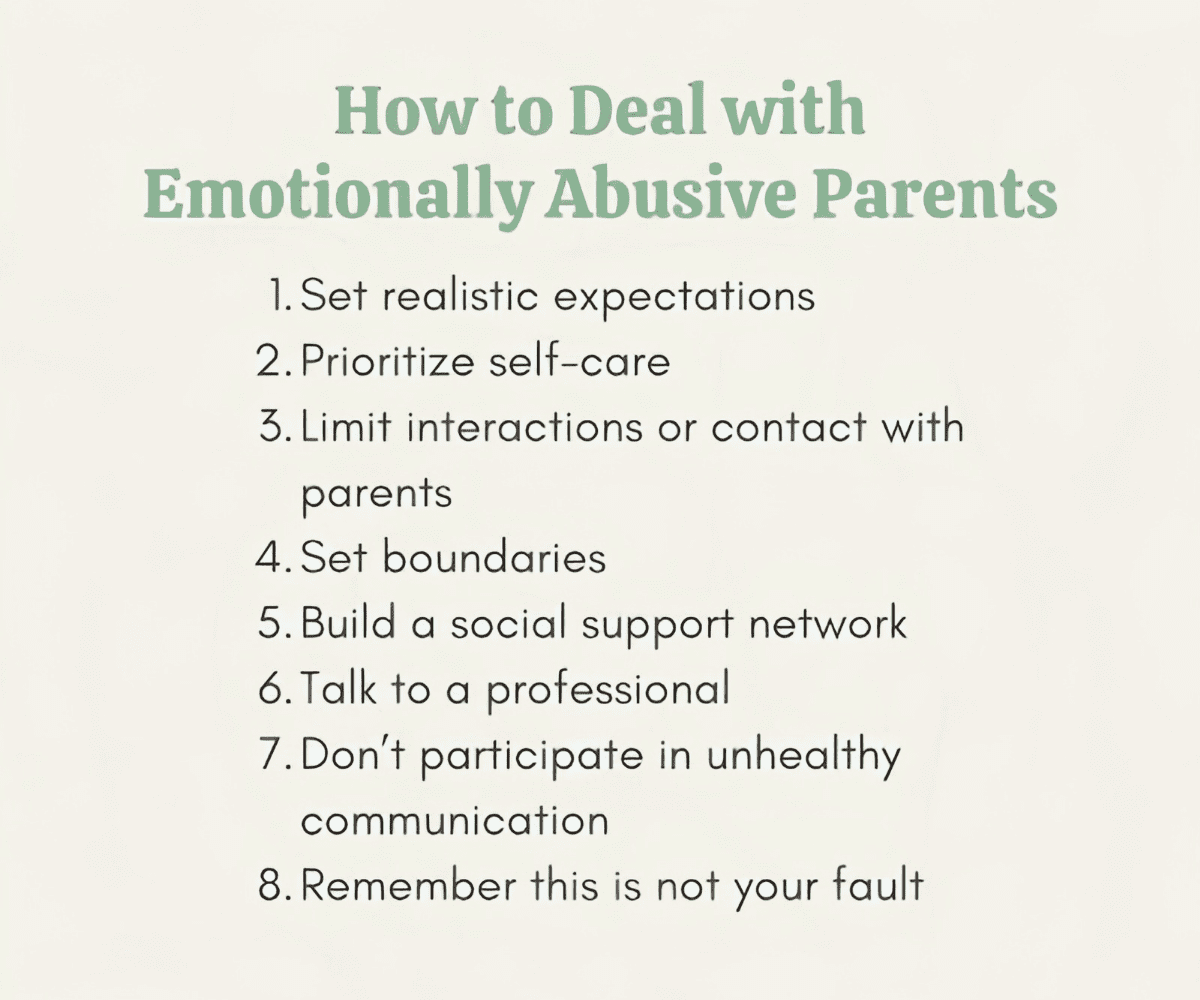Emotional Abuse Checklist: Recognizing the Signs


Emotional abuse is when someone hurts your feelings over and over again, which can really hurt you inside. It’s not like physical abuse where you can see bruises. Emotional abuse is tricky because it’s hard to see, but if you know what to look for, you can figure out if it’s happening to you and take steps to stop it.
What is Emotional Abuse?
Emotional abuse is when someone treats you badly to make you feel bad about yourself. This can include saying mean things, making you feel small, scaring you, controlling you too much, or tricking you.
Why is it Important to Recognize Emotional Abuse?
Emotional abuse can have long-lasting and severe consequences on an individual’s mental health, self-esteem, and overall well-being. It can lead to anxiety, depression, post-traumatic stress disorder (PTSD), and even suicidal thoughts. Recognizing the signs of emotional abuse is crucial for breaking the cycle and seeking the necessary support and resources.
Emotional Abuse Checklist
To help identify emotional abuse, here is a checklist of common signs and behaviors to watch out for:
1. Verbal Attacks and Insults
- Your partner frequently criticizes, belittles, or insults you, either in private or in front of others.
- They mock or ridicule your beliefs, values, or opinions.
- They blame you for their own mistakes or shortcomings.
2. Gaslighting and Manipulation
- Your partner denies or distorts reality, making you question your own perception or memory of events.
- They twist situations or lie to make you doubt yourself or feel guilty.
- They manipulate you into doing things you don’t want to do or make you feel responsible for their emotions or actions.
3. Intimidation and Threats
- Your partner uses intimidating gestures, such as yelling, throwing objects, or invading your personal space to instill fear.
- They threaten to harm you, themselves, or others if you don’t comply with their demands.
- They destroy or threaten to destroy your personal belongings or possessions.
4. Isolation and Control
- Your partner isolates you from friends, family, or activities you enjoy.
- They monitor or control your movements, communications, or activities.
- They make all the decisions without considering your input or preferences.
5. Emotional Neglect and Rejection
- Your partner ignores or dismisses your feelings, needs, or concerns.
- They withhold affection, praise, or appreciation as a form of punishment or control.
- They reject or abandon you during times of need or vulnerability.
6. Financial Control
- Your partner controls or restricts your access to financial resources or employment opportunities.
- They demand that you account for every penny spent or make you feel guilty for spending money.
- They sabotage your efforts to become financially independent or successful.
Conclusion


Emotional abuse is a serious and damaging form of mistreatment that can have long-lasting effects on an individual’s mental health and well-being. By being aware of the signs and behaviors listed in this checklist, you can recognize if you or someone you know is in an emotionally abusive situation.
It’s important to remember that emotional abuse is never acceptable and should not be tolerated. If you or someone you know is experiencing emotional abuse, it’s crucial to seek help and support from trusted friends, family members, counselors, or domestic violence organizations.
Remember, you deserve to be treated with respect, dignity, and compassion. Don’t hesitate to reach out for help and take steps to protect yourself from further harm.
Frequently Asked Questions (FAQs)
1. Can emotional abuse happen in all types of relationships?
Yes, emotional abuse can occur in any type of relationship, including romantic partnerships, familial relationships, friendships, and even professional settings. It is not limited to a specific type of relationship or dynamic.
2. Is emotional abuse a form of domestic violence?
Yes, emotional abuse is considered a form of domestic violence. While it may not involve physical harm, it is a pattern of behavior that aims to control, intimidate, and undermine the victim’s sense of self-worth and well-being.
3. Can emotional abuse escalate into physical violence?
Unfortunately, emotional abuse can sometimes escalate into physical violence. It is often a precursor to physical abuse, as the perpetrator may use emotional tactics to gain control and power over the victim before resorting to physical force.
4. Is emotional abuse a one-time event or a pattern of behavior?
Emotional abuse is typically a pattern of behavior rather than a one-time event. It involves repeated and persistent actions or behaviors that are aimed at undermining the victim’s sense of self-worth and well-being over time.
5. Can emotional abuse occur in same-sex relationships?
Yes, emotional abuse can occur in same-sex relationships just as it can in heterosexual relationships. The dynamics of power, control, and emotional manipulation can manifest in any intimate relationship, regardless of gender or sexual orientation.
6. Is it possible to recover from emotional abuse?
Yes, it is possible to recover from emotional abuse with the right support and resources. Seeking professional counseling, joining support groups, and building a strong support system can help individuals heal from the trauma and regain their self-confidence and emotional well-being.
7. What should I do if I suspect someone is experiencing emotional abuse?
If you suspect someone is experiencing emotional abuse, offer them a non-judgmental and supportive ear. Encourage them to seek professional help or contact domestic violence organizations for resources and guidance. Remember to prioritize their safety and respect their decisions.
Remember, emotional abuse is a serious issue that should not be ignored or minimized. By being aware of the signs and seeking help, individuals can break free from the cycle of abuse and reclaim their emotional well-being and sense of self-worth.

